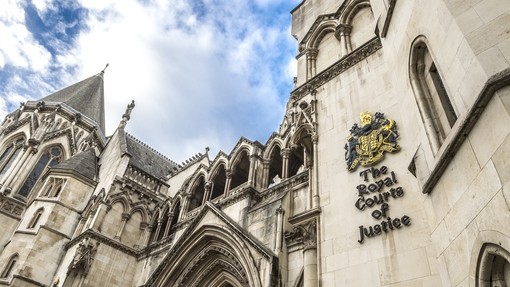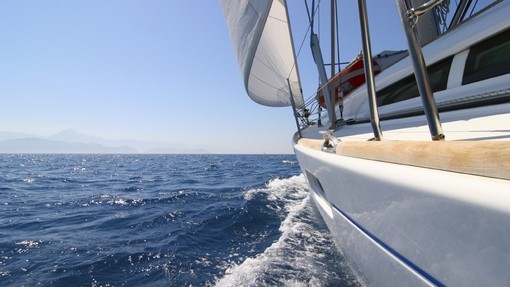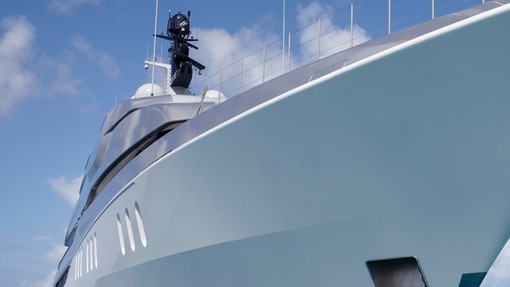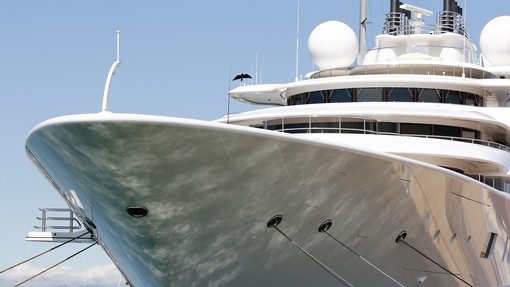Detention of superyacht M/Y Phi:
High Court dismisses the owners’ challenge to the legality of the detention
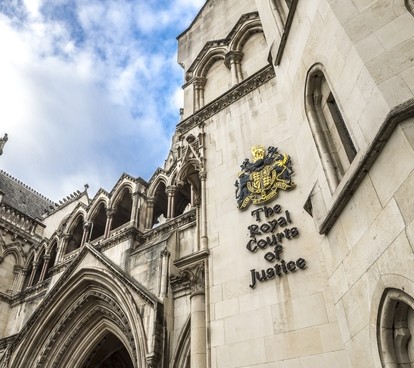
Detention of superyacht M/Y Phi: High Court dismisses the owners’ challenge to the legality of the detention
In our last article, we discussed the circumstances of M/Y Phi’s detention on 28 March 2022 while lying in port at Canary Wharf, London. We also outlined the legal bases under which the owners of superyacht M/Y Phi could challenge and seek to have set aside, the government’s decision to detain the yacht, through their claim issued in the High Court of London.
During a two-day hearing earlier this month (July 2023), the owners focussed their challenge to the legality of the detention on two bases:
i. Firstly they argued that the Secretary of State had acted unlawfully because, they claimed, the Detention Order was made for purposes not contemplated by the legislation i.e. an alleged improper purpose;
ii. Secondly the owners argued that detention was a disproportionate interference with private property rights.
The hearing Judge, Sir Ross Cranston, has now handed down his judgment in favour of the Respondent to the action, The Secretary of State for Transport, and dismissing the owners’ claim.
Decisions of the High Court are publicly available and a copy of the full published judgment in relation to M/Y Phi is available here. This transparency and the public nature of English Court proceedings is one of the reasons why in the superyacht context, parties often opt to have their contracts governed by English law but subject to arbitration proceedings, which are, in contrast to Court proceedings, largely confidential.
As regards the decision, it was accepted that the Secretary of State has powers (conferred by (Russia (Sanctions) (EU Exit) Regulations 2019 SI 2019/855) to detain ‘a ship owned, controlled, chartered or operated by persons connected with Russia’, and that the ultimate beneficial owner of the yacht, Mr Naumenko lived in Russia and was ‘connected with Russia’ within the meaning of the Regulations. However, the owners argued that targeting the assets of an individual who was not sanctioned and who may at its highest, be said to give tacit acceptance to Putin’s regime ‘fell short of the proper purpose of the Sanctions Regulations’. This was rejected by the Court.
The Judge held that the Regulations clearly do not limit detentions to assets owned by sanctioned individuals. Further the owners were not correct in their contention that the purpose of the detention powers were either to support a scheme to prevent Russian ships from entering UK ports and/or narrowly related to disrupting Russia’s maritime trade and transport of goods and personnel.
Rather, the Judge explained, the Regulations were a limb of the Government’s foreign policy designed to encourage Russia to cease its actions regarding Ukraine. The Judge found that ‘the legislative purpose has been to confer powers in the broadest possible terms to allow Ministers to impose sanctions that would exert maximum pressure on Russia in a wide variety of ways.’ Legislation relating to individuals ‘connected with’ a particular country are intended to have a ‘broad and deep impact’ with the acknowledged consequence of affecting those not personally involved in the activities being targeted. As an ‘oligarch’, the Secretary of State for Transport had determined that ‘it was likely that he (Mr Naumenko) had benefited from the regime and that targeting him would send a signal to others in his position about the implications of Russia’s actions in Ukraine.’
As regards the proportionality argument, the Judge accepted the Secretary of State for Transport’s argument that ‘given the likely direct and indirect links between Mr Naumenko’s wealth, economic activities, and the Russian state, it is rational to consider that Mr Naumenko is the sort of individual economic actor on whom sanctions could effect the ‘broad and deep impact’ which Parliament intended via the ‘connected with Russia’ powers in, at the least, weakening their tacit support for the regime.’
Furthermore, the Judge held that ‘The Secretary of State need not demonstrate the efficacy of each individual detention (or designation) decision in order to maintain a sanctions measure. Certainly, it would be difficult to demonstrate that any one decision would have the desired foreign policy outcome. It is not an issue for the court. In the end all that is needed is a rational connection between the sanctions measure and the aim.’
Commentary
The judgment also noted that the Government’s decision to continue the detention was influenced by the risk that the Yacht’s release would suggest a softening of its position. As this seems to be an impression that the UK Government wants to avoid at all costs, it seems unlikely that there will be any reprieve for the Yacht in the short term.
The court was not concerned with the practicalities of what, if anything, happens next for M/Y Phi; the Court has done its job by determining that the detention is lawful.
As to the possibility of an appeal on behalf of the owners of M/Y Phi, while in some jurisdictions parties may automatically issue an appeal, as of right, in the English court system a losing party needs permission to appeal, which is only granted if a Judge decides that the appeal ‘would have a real prospect of success’ or ‘if there is some other compelling reason for the appeal to be heard’. Any application for permission to appeal should normally be made within 21 days of the published judgment. It is not known whether permission to appeal will be requested by the owners of M/Y Phi. We will further follow the case should any appeal be requested and granted.
M/Y Phi is one of a number of superyachts detained under sanctions’ regimes. While many of the specifics of each regime differ, all the detained superyachts are depreciating assets with very high maintenance costs that continue to accrue notwithstanding the fact they cannot be used. Detained superyachts are in limbo. Whether or not the various jurisdictions’ sanctions regimes will be maintained in their current form, for as long as the Russian invasion and conflict in Ukraine lasts, is unknown.
In Hill Dickinson we are closing monitoring the development of the various sanctions’ regimes and their impact on the superyacht industry at large. For more information on this topic please contact us.

